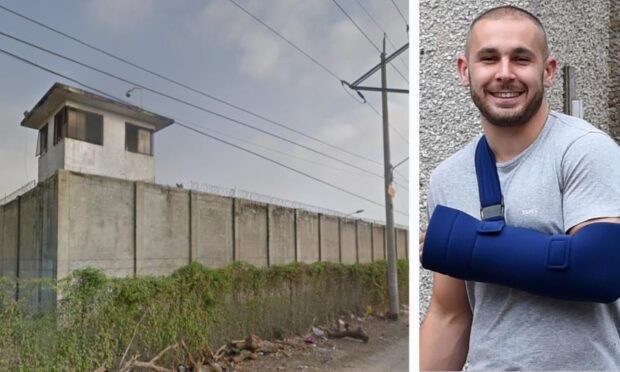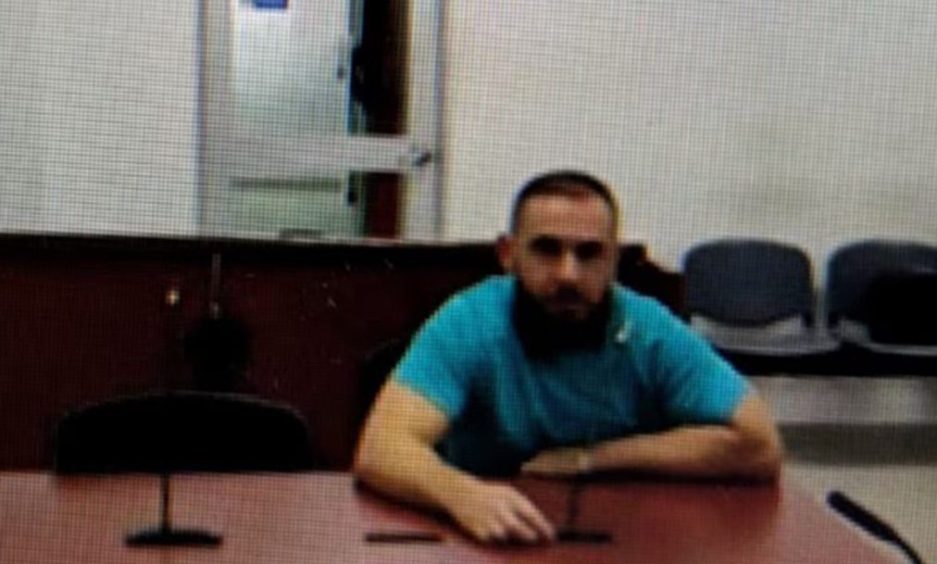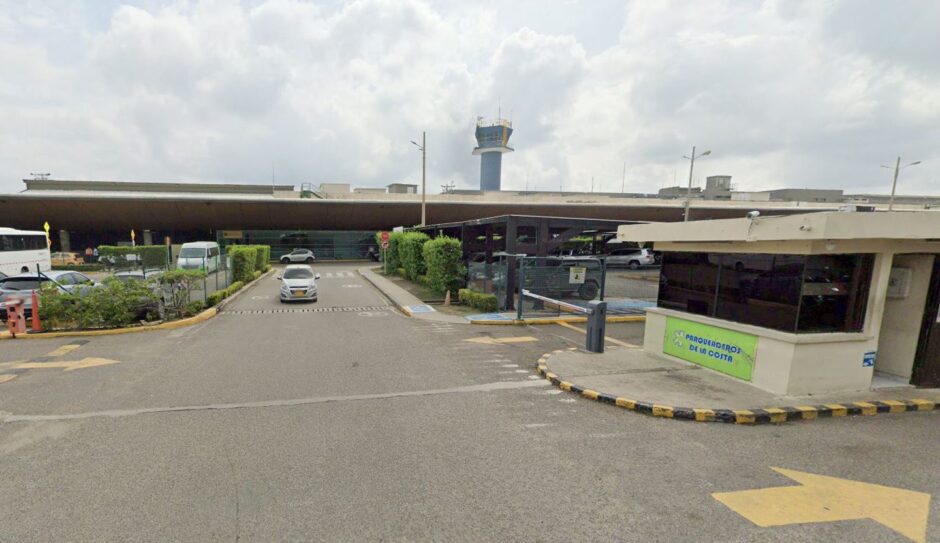A suspected drugs mule from Aberdeen could be held in a South American jail – described as “like hell” – for a year awaiting trial.
We reported earlier today that Ricky Courage was arrested in north-western Colombia after being accused of trying to smuggle almost 2kg of cocaine out of the country and into Scotland.
Now, we can reveal more detail about the case – and what lies in store for the 32-year-old who is being held in custody at a facility where violence is a daily occurrence.
It is understood that Courage, of Dyce, travelled from the UK to South America in September as a tourist.
He spent a few days in the city of Cartagena – a tourist hub known for its fortress, convents and churches.
Then on September 29, Courage went to the city’s Rafael Nunez International Airport and checked in a suitcase.
Courage then passed through airport security and was set to take a 10-hour KLM flight to Amsterdam where he planned to transfer to Scotland.
Accused ‘does not accept responsibility’
However, sniffer dogs allegedly flagged a problem with his check-in suitcase.
When agents searched it, they found just shy of 2kg of cocaine wrapped in black plastic.
Authorities are yet to put a value on the drugs.
Before Courage could board the plane, he was apprehended and taken into custody.
According to a lawyer with knowledge of the case, a three-stage court process is underway in Courage’s case.
Jose Fuentes, who is one of a handful of criminal lawyers approved by the Foreign, Commonwealth and Development Office (FCDO) to assist Brits abroad, spoke to the P&J about the case.
He said: “The first stage came right after his arrest.
“Mr Courage was taken by police to what is called a Judge of Guarantees, who checked that the arrest was well made.
“That judge decided in a primary court hearing that the arrest was well made and decided that Mr Courage should be put in custody while prosecutors continue with their investigation.
“The second stage is for the case to be referred to a Judge of Knowledge.”
According to the Colombian authorities, Courage has said he “does not accept responsibility”.
However, this does not amount to a ‘not guilty’ plea.
He could be in custody for a year or longer
Mr Fuentes added: “The judge will consider the case – whether there is a plea, whether there is not and whether it results in a conviction.
“And if there is a conviction it goes to a third judge, who will decide on the sentence.
“How long all this takes depends on the court backlog, and this can be quite high due to the number of drugs cases within Colombia.
“It will be at least a year before his case progresses.
“It is possible that he can be bailed somewhere in the meantime, but that depends on the charges against him and his legal representation.
“But at the moment he will be in custody for a while.”
Courage is being held at San Sebastian Temera Prison in Cartegena.
Some prisoners wait up to two years there before they are freed or are sentenced.
However it is understood that Courage’s case would be unlikely to take that long as Courage is a foreign national.
Mr Fuentes described the prison as “a kind of hell”.
He added: “These prisons are overcrowded and you have to pay for everything there – even for breathing.
“But if you don’t have problems with anyone, you quickly learn the codes of conduct and you can get away with a trouble-free life.”
Gangs, tiny cells and sanitation problems
According to local media reports, inmates are kept in numbered “pavilions” – each of which hold 172 detainees.
Prisoners are kept four to a cell and each cell measures just 4sq m.
Cells have a sink, a toilet and a shower, as well as makeshift beds.
The prison houses members of two rival gangs – the Clan del Golfo and the Heroica – who are at war over trafficking routes in the city’s ports.
Gangs have shot two guards from the jail on the street twice this year, causing them serious injuries.
It was one of the most overcrowded jails in the country before Covid but is now less strained.
The government built space for 516 more prisoners in 2021 and there are now 1,980 detainees – down from 2,800 before the pandemic.
However, problems with water supply and sanitisation remain.
Inmates must get up at 5.30am and stay out in the yard until mid-afternoon – but they are forbidden from sleeping until the evening.
Many prisoners complain of getting sunstroke due to being exposed to direct sunlight for hours on end.
Courage is receiving help from the FCDO, which cannot interfere with the legal case but can ensure detainees are treated humanely and alert government officials if there are problems.
An FCDO spokesperson said: “We are in contact with the local authorities following the arrest of a British national in Colombia.”



Conversation